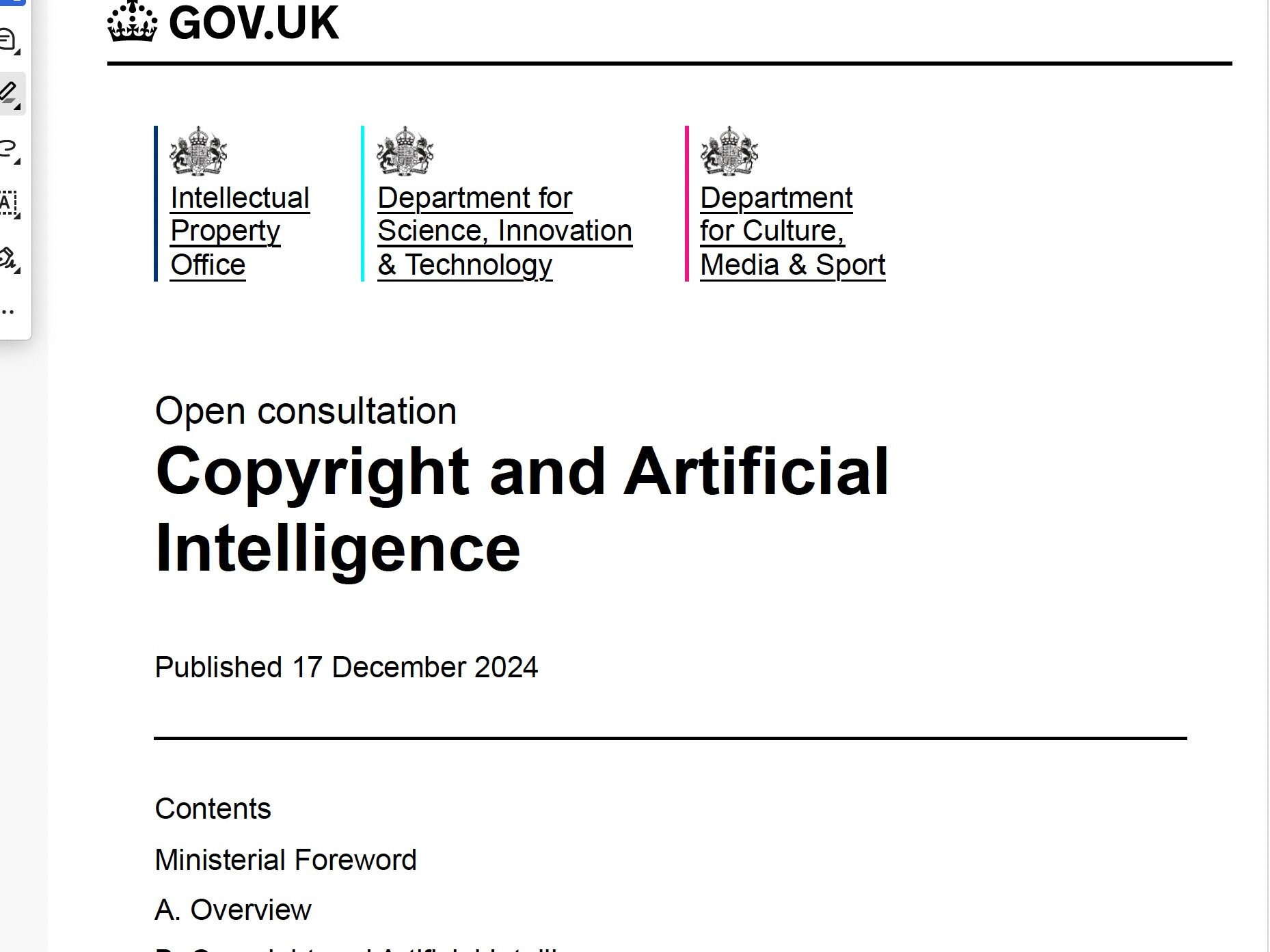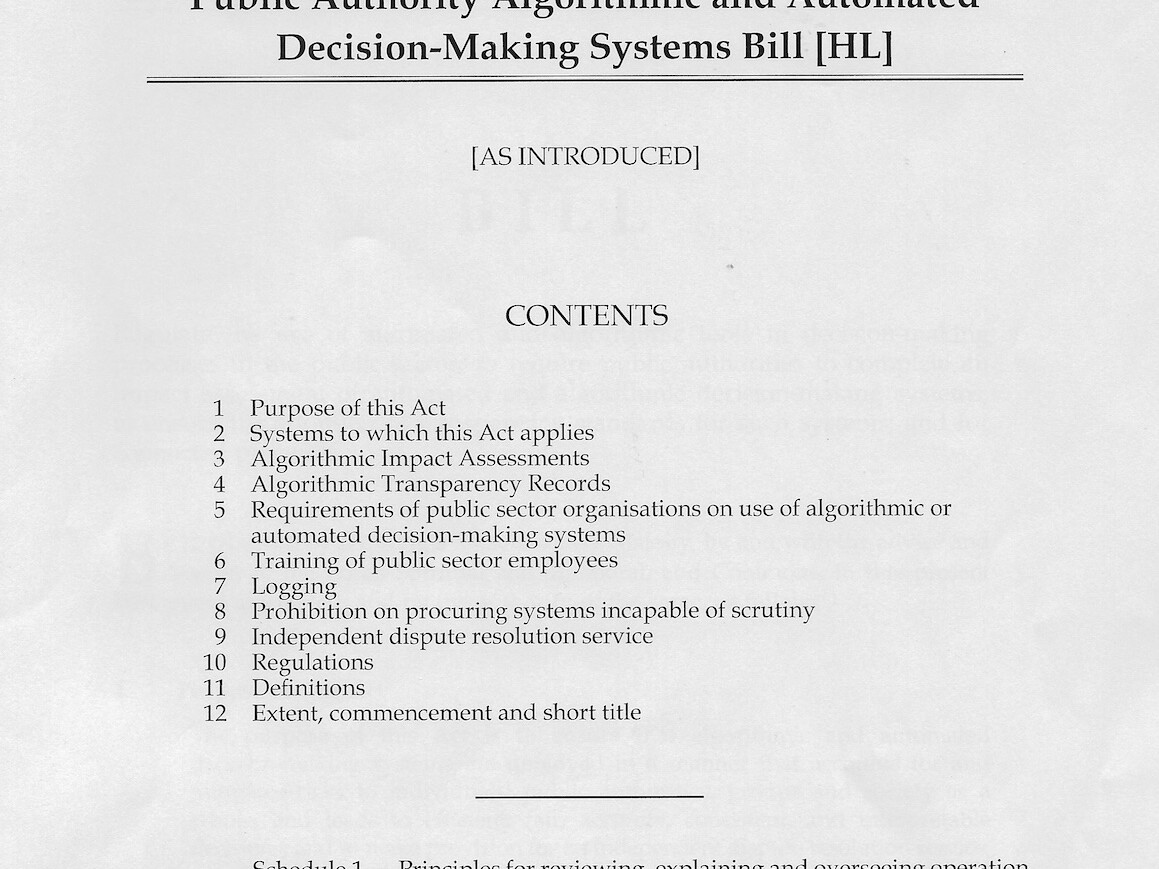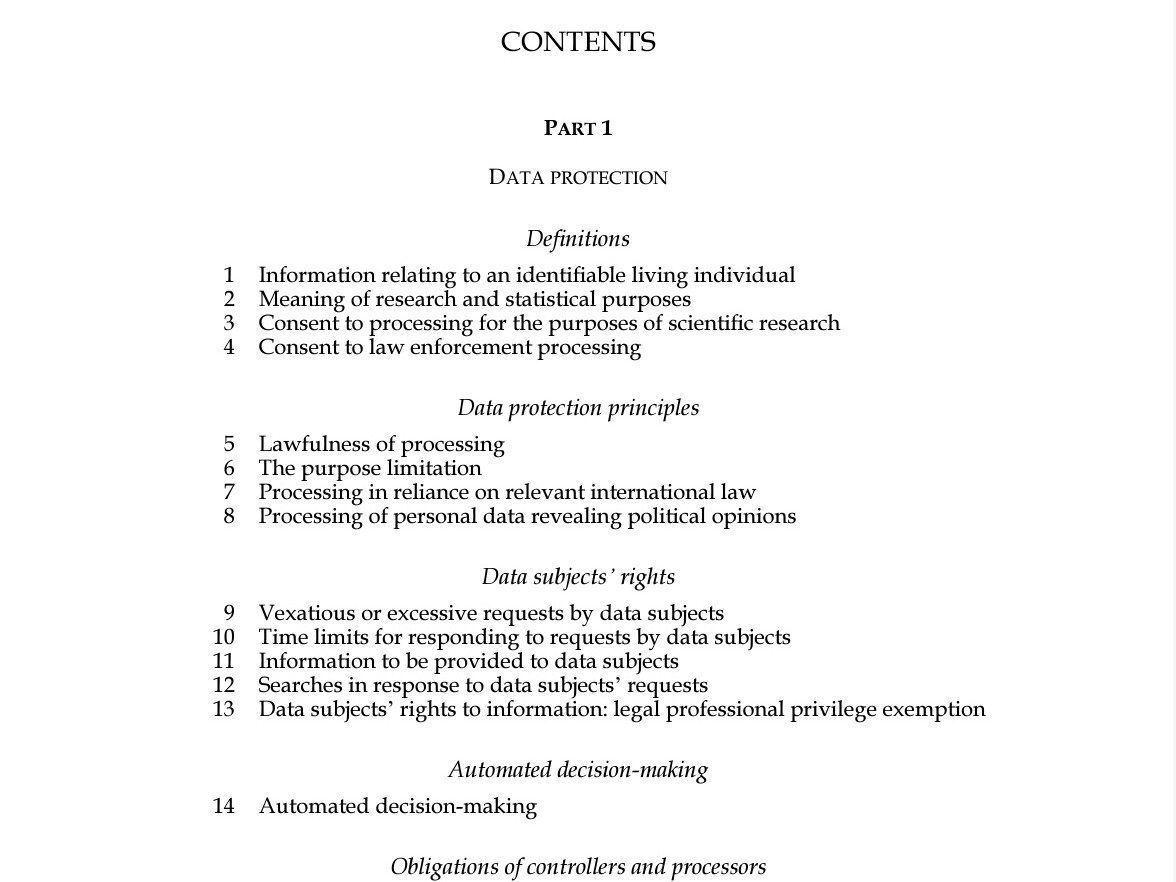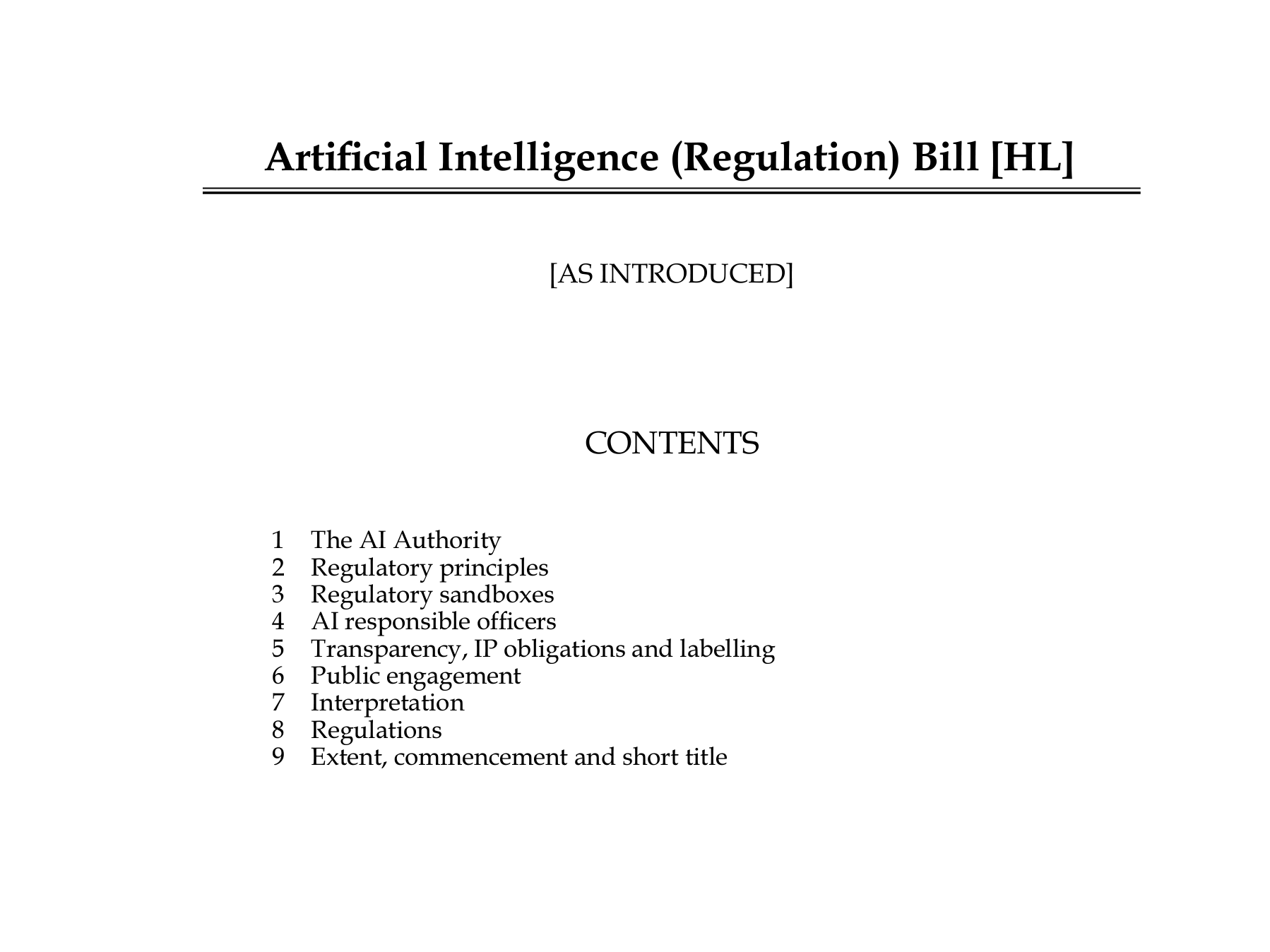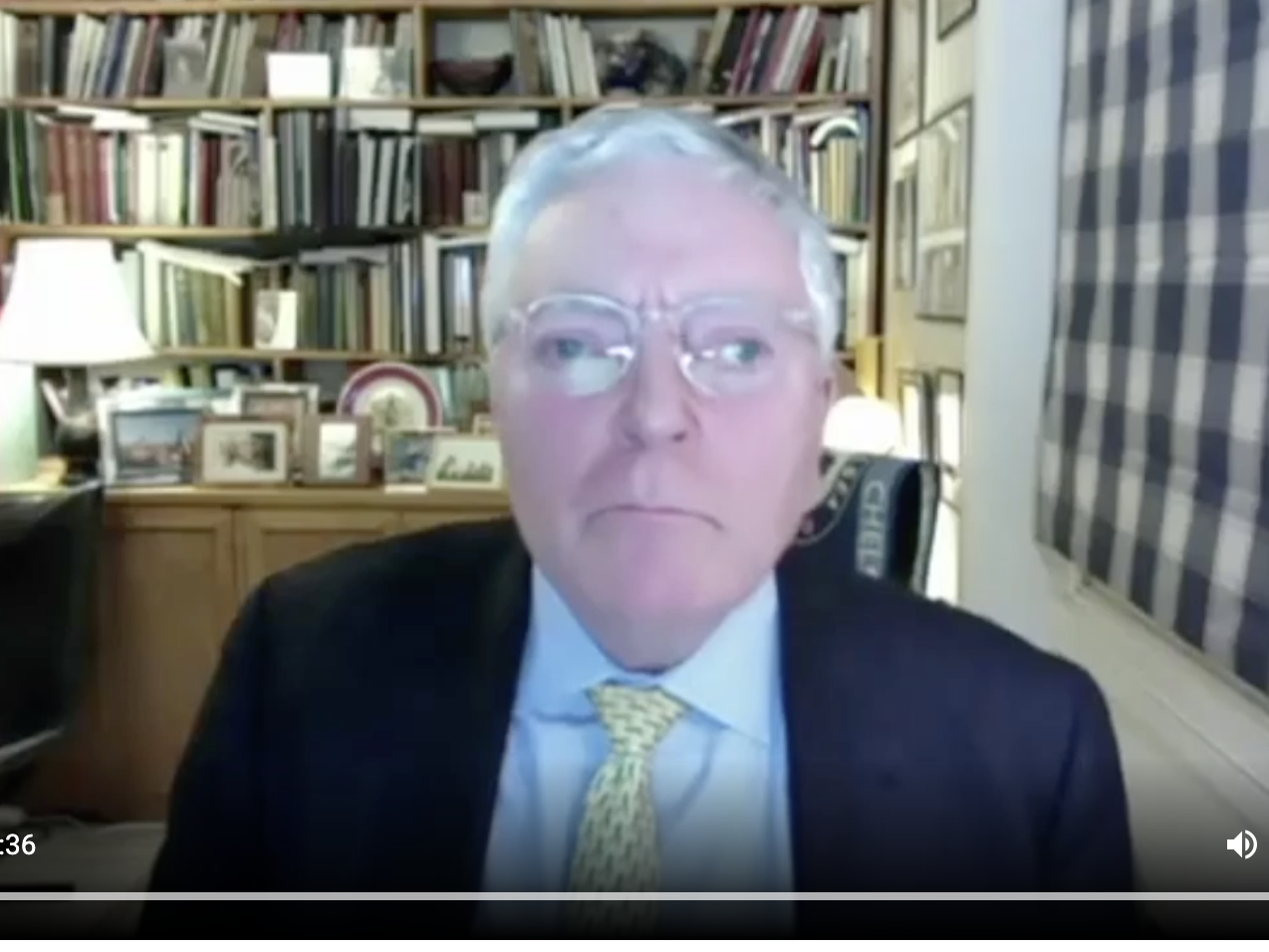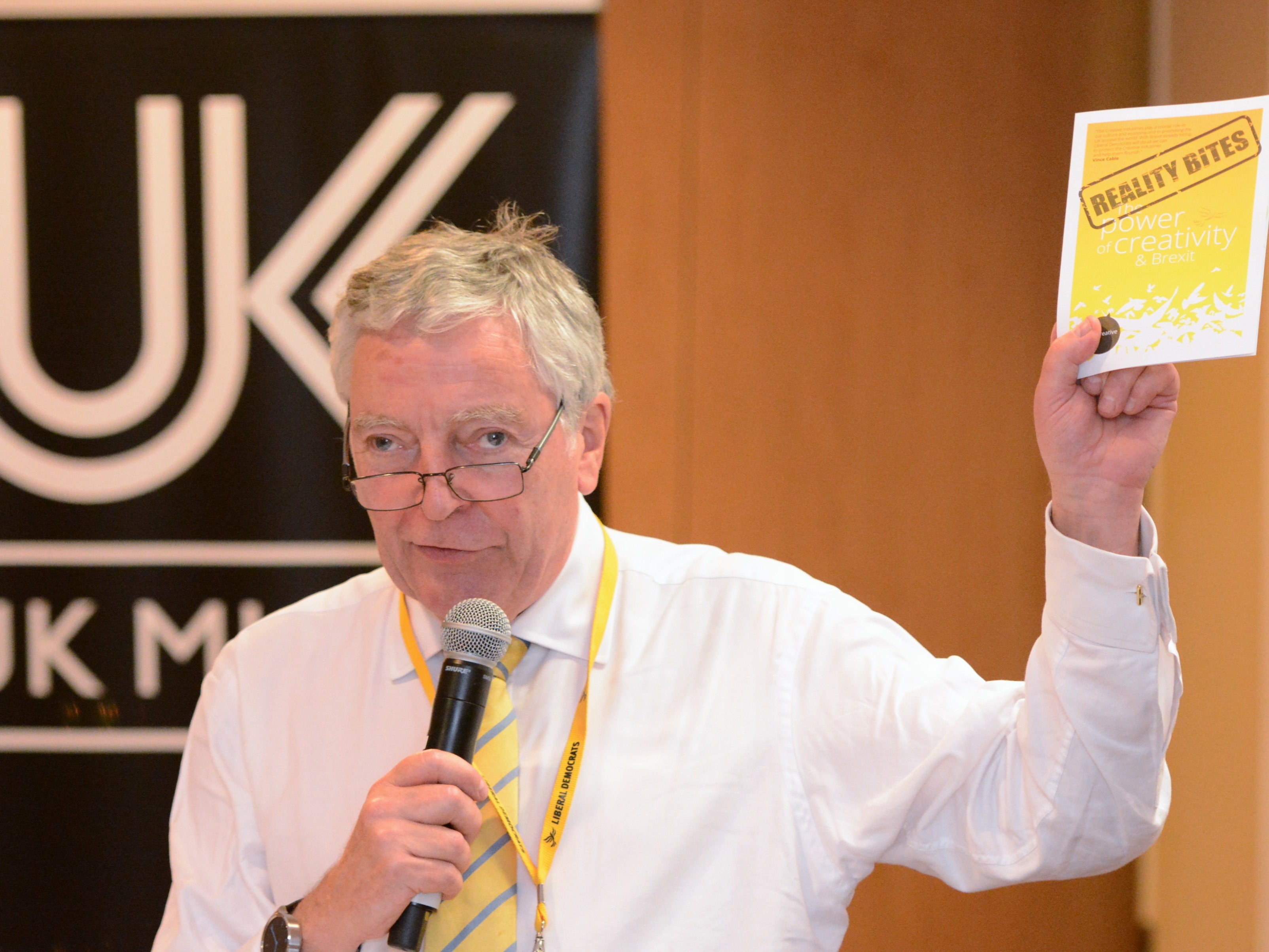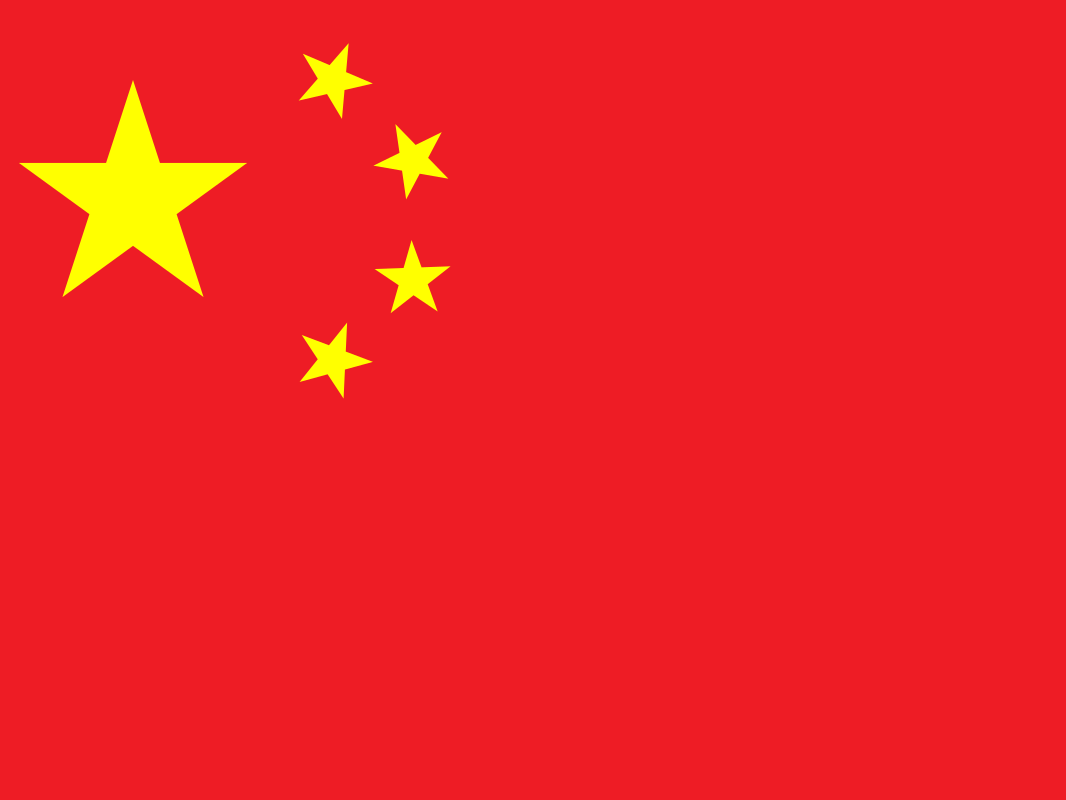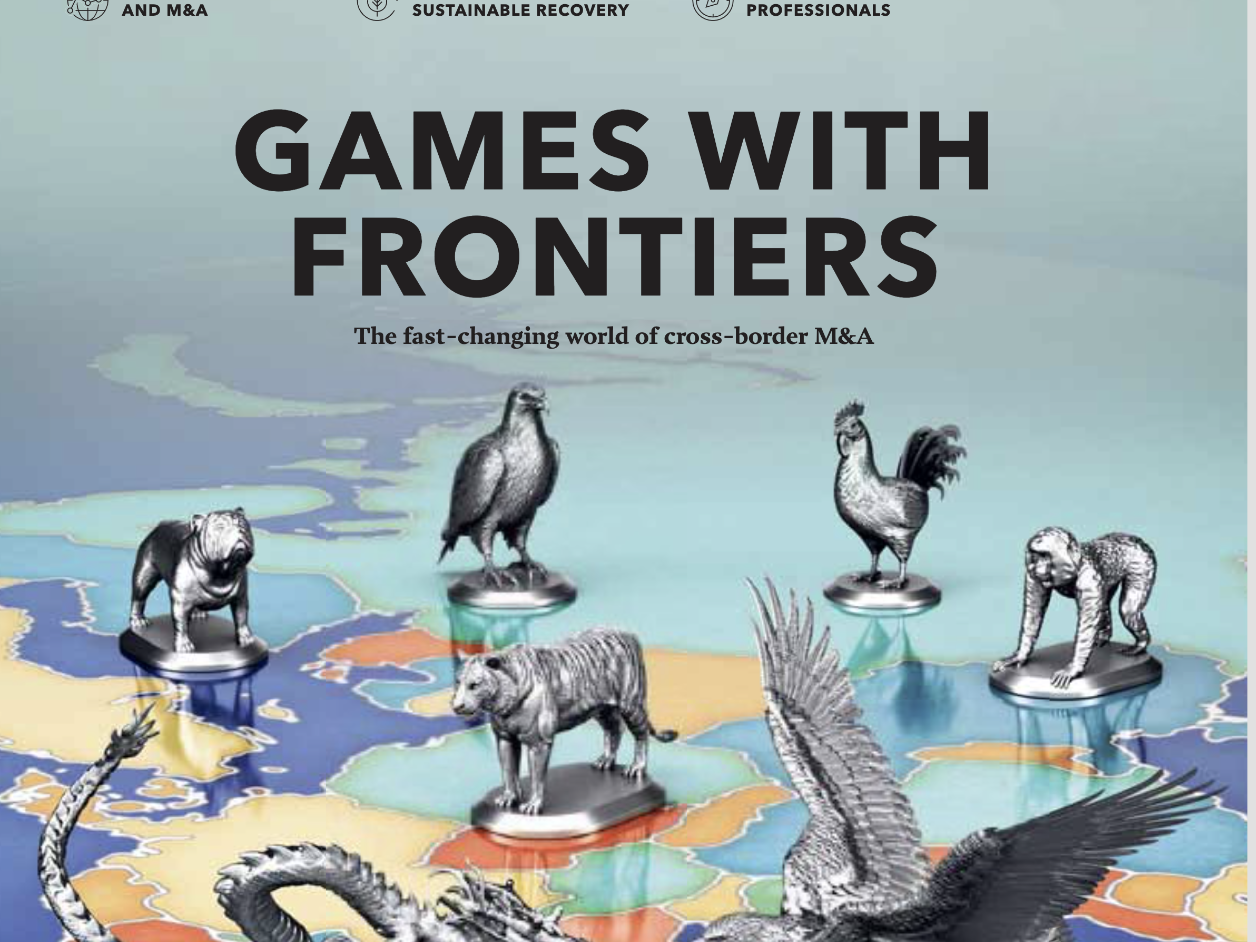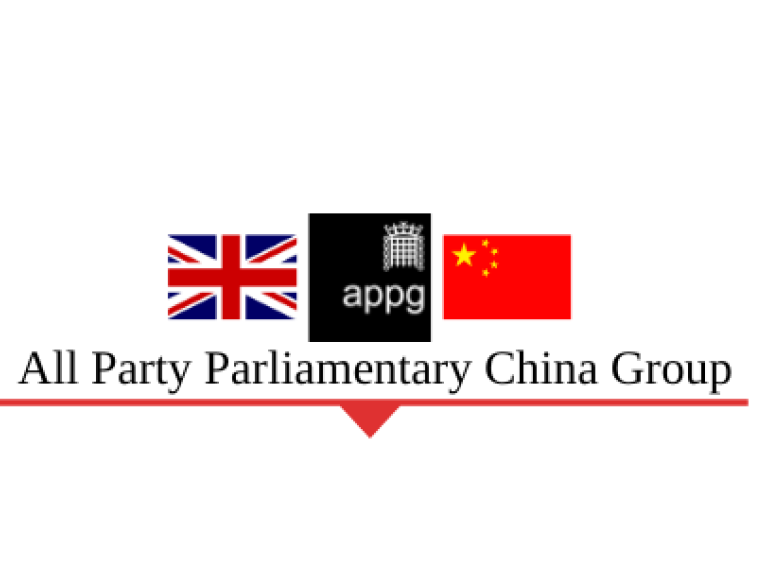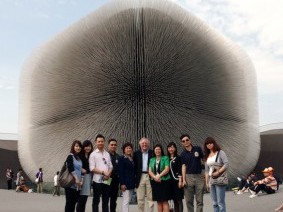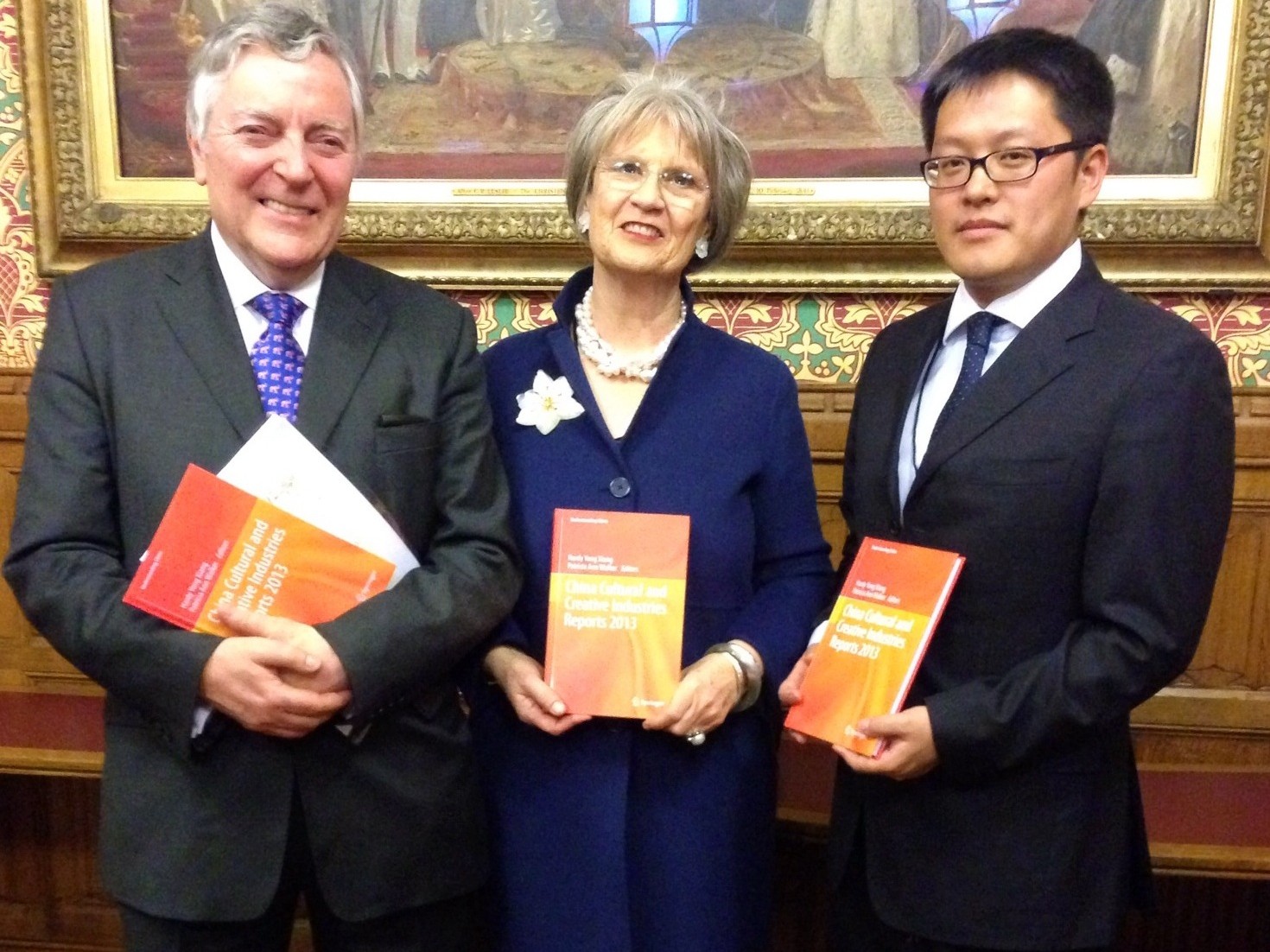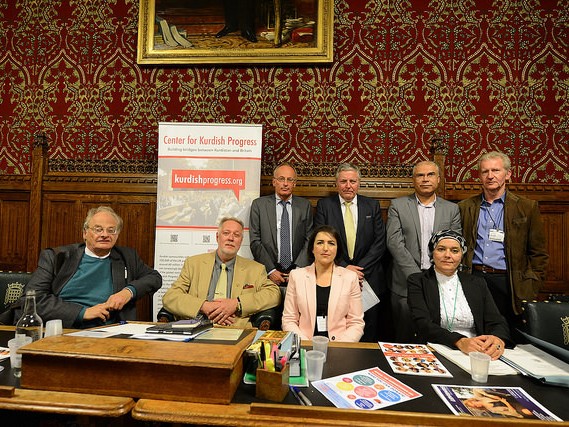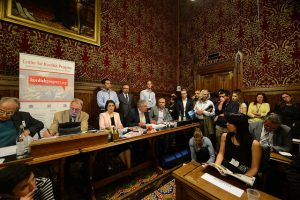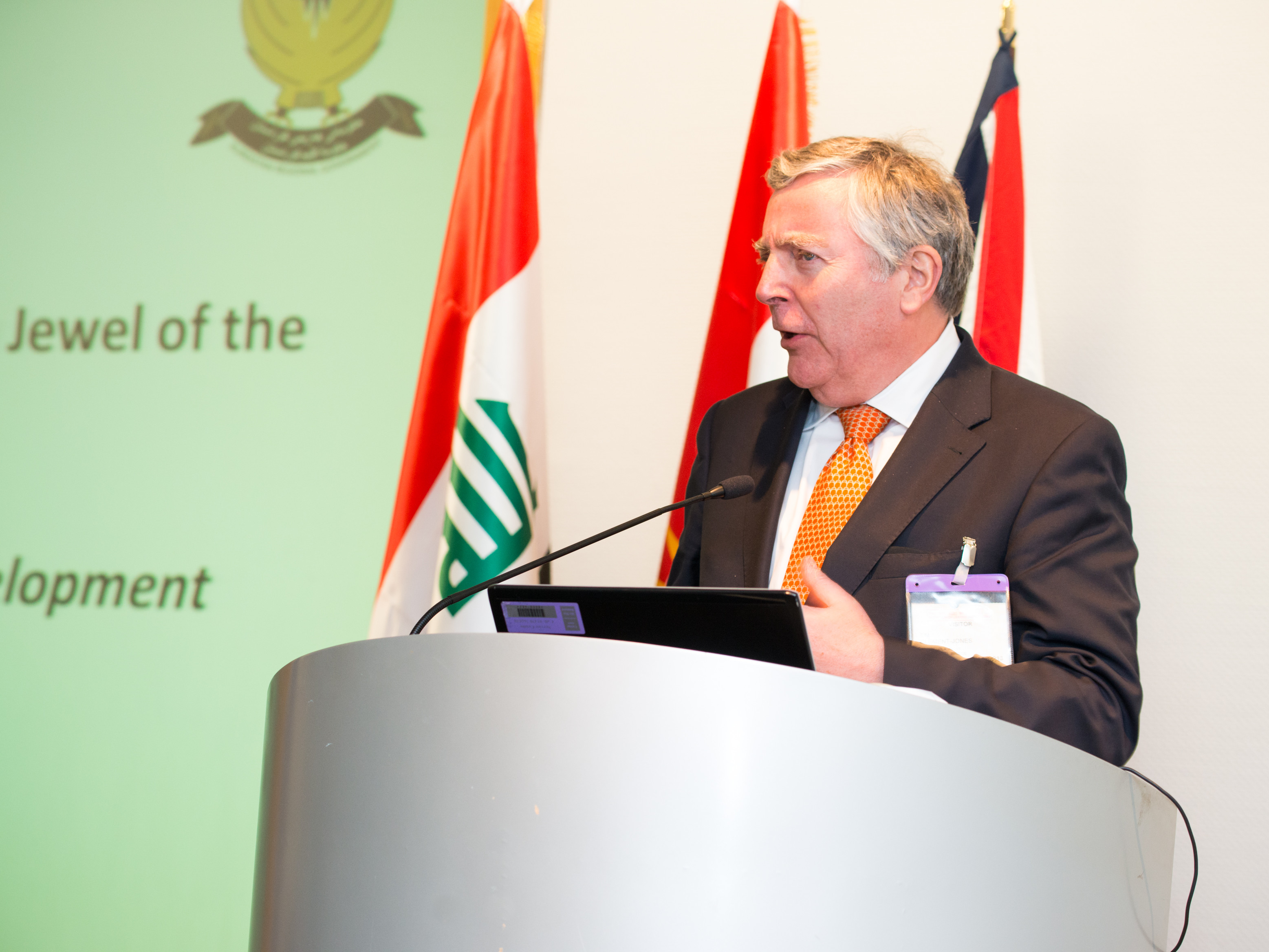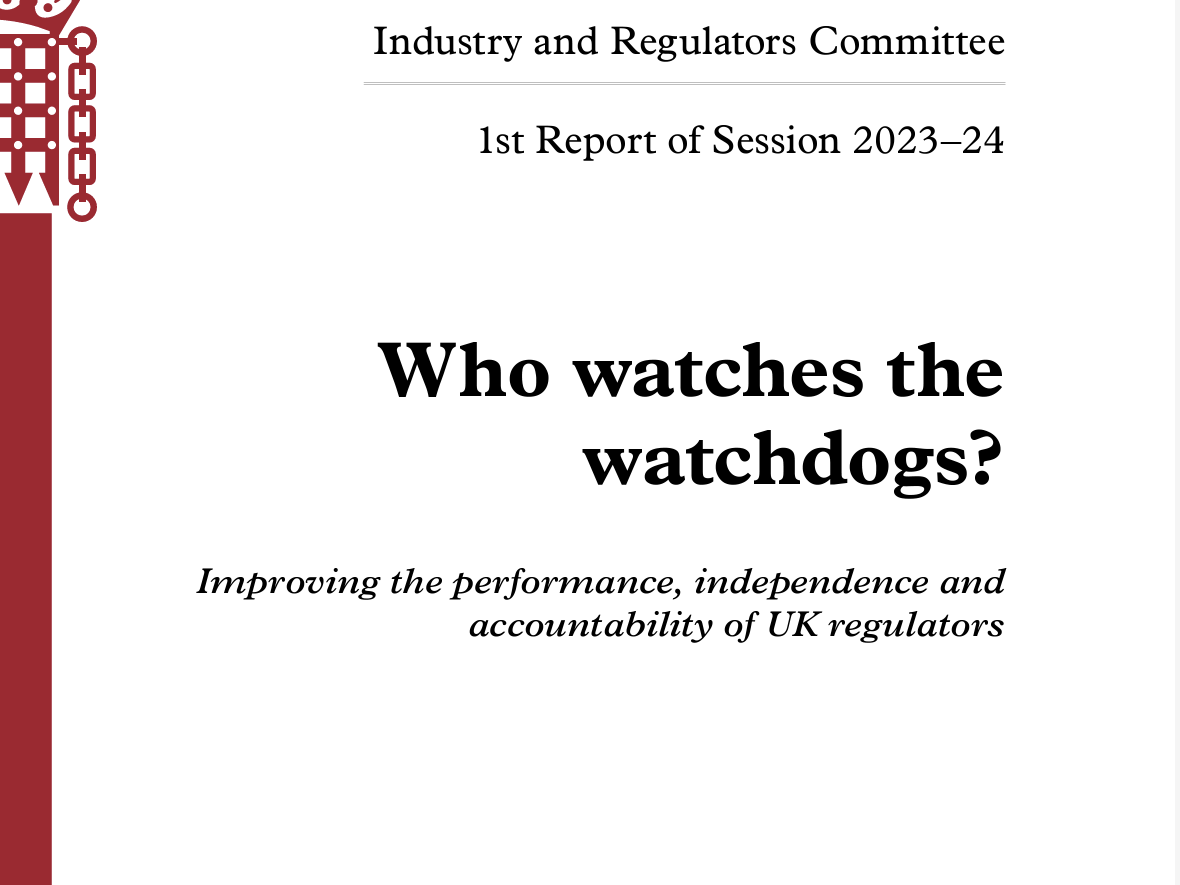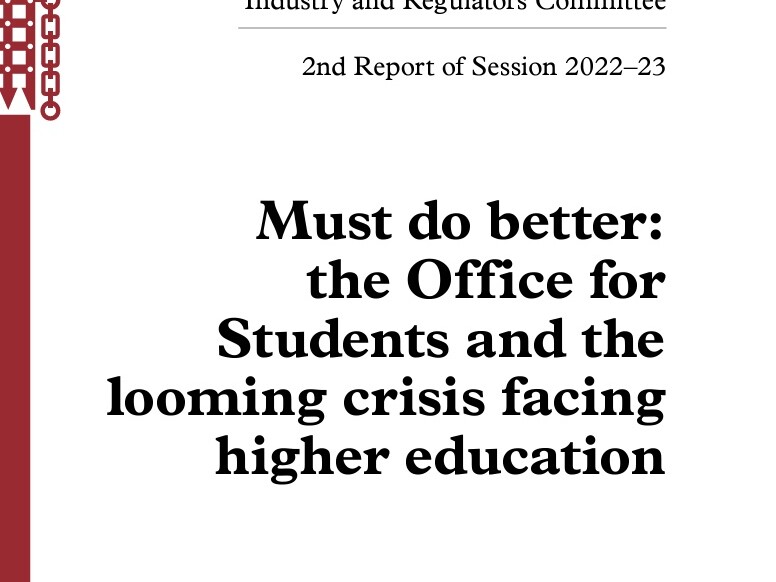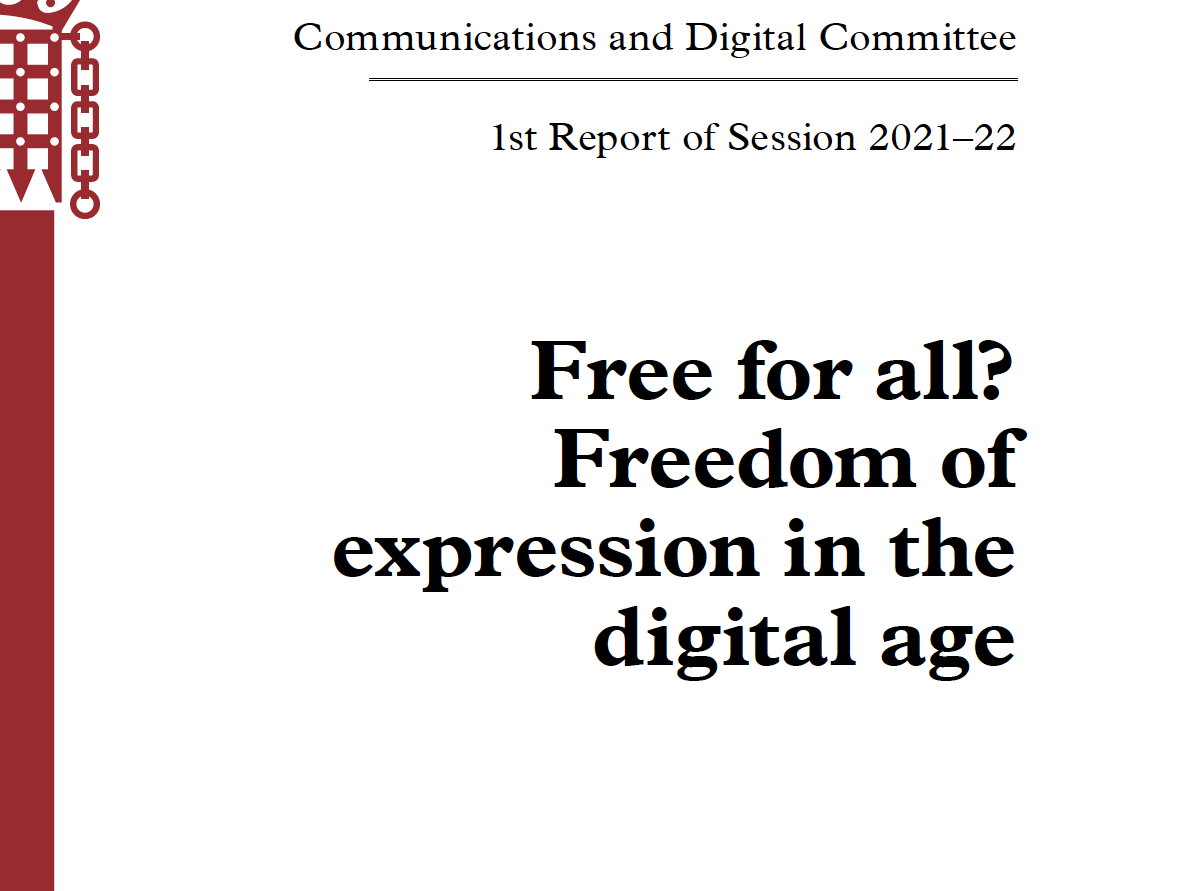8th March 2025
Lord C-J: We need more women in the STEM Workforce
The House of Lords recently celebrated International Women's Day with a debate to…
1st March 2025
AI and Copyright Lord C-J ” The Government need to take this option off the table”
With huge thanks to Christian Gordon-Pullar for all his work here is our…
21st December 2024
Government’s AI Copyright Consultation is Selling out to the Techbros
We have recently seen the publication of the Government's Copyright and AI…
21st December 2024
We Need Better Protection for Citizens in the Face of Automated Decision Making
The second Reading of my Private Members Bill tool place recently. It is designed to…
24th July 2024
Lord C-J Commentary on the new Government’s Science and Technology Programme
Sadly we only had 5 minutes speaking time in the recent Kings Speech debate . Here…
2nd June 2024
Data Protection and Digital Information Bill lost in wash up-Hurray!
Having worked hard since the very first version of this bill (which was…
20th April 2024
Lords Debate Report on AI in Weapon Systems
Recently the House of Lords Debated the Report of the AI in Weapon Systems…
1st April 2024
Lord Holmes Private Members bill a “stake in the ground” says Lord C-J
Lord Holmes of Richmond recently introduced his Private Members Bill -The Artificial…
1st April 2024
New Digital Markets Bill Must Not be Watered Down
The Digital Markets Competition and Consumer Bill had its Second Reading in the…
2nd March 2024
Living with the Algorithm now published!
Living with the Algorithm Servant or Master? AI Governance and Policy for the…
2nd March 2024
AI Regulation-It’s All about Standards
I recently gave a talk to the Engineers' Association of my Alma Mater, Trinity…
24th February 2024
Great prospects but ….. The potential and challenges for AI in healthcare.
I recently wrote a piece on AI in healthcare for the Journal of the Apothecaries…
1st March 2025
AI and Copyright Lord C-J ” The Government need to take this option off the table”
With huge thanks to Christian Gordon-Pullar for all his work here is our…
21st December 2024
Government’s AI Copyright Consultation is Selling out to the Techbros
We have recently seen the publication of the Government's Copyright and AI…
9th July 2023
Remove the divide between the creative insustries and technology
The House of Lords recently debated the Report from the Communications and…
30th July 2022
Music Touring : The problems remain
The Earl of Clancarty recently initiated a debate on Music Touring. Many of us have…
1st April 2022
Design Rights Still the “Poor Cousins”: Better Design Protection Needed
Christian Gordon-Pullar-to whom huge thanks- and I put forward evidence recently to…
27th November 2021
Peers Advocate the Value of Music Therapy for Dementia
Peers recently debated a question raised by crossbencher Baroness Greengross on what…
4th November 2021
The Government Needs to Support our Threatened Creative Sectors post COVID
I recently took part in a Liberal Democrat debate initiated by my colleague Baroness…
5th April 2021
Lord C-J Questions Touring Negotiation Failure
I questioned the Government on its total failure to negotiate a deal with the EU.…
5th April 2021
Lord C-J : Give Musicians the Freedom to Tour
At a recent debate colleagues and I heavily criticized the Government’s failure to…
5th April 2021
Prime Minister Sacrificing Our Creative Industries on the Altar of Sovereignty
Lord C-J on the Brexit betrayal of our creative industries
18th September 2018
UK Music Host Expert Panel on the Talent Pipeline at Lib Dem Conference
An expert panel of senior Lib Dem parliamentarians and industry professionals…
21st April 2018
A heartfelt celebration of the Life of Jonny Walker Campaigner Extraordinaire
At a wonderful jam packed service in Leeds Minister we celebrated the life and…
4th July 2021
In the new era of geopolitical competition and economic rivalry, what strategies should China and the UK adopt to forge a more constructive relationship?
From Kalavinka Viewpoint #8
The prevailing mood now in Europe is to view China through a security and human rights lens rather than the trade and investment approach of the past 20 years. This has been heavily influenced by the policy of successive US administrations. People make a big mistake thinking geopolitical American policy always changes with a new administration. Not having Trump tweeting at 6am is a relief, but Joe Biden is going to be as hardline over security issues and relations with China as his predecessor. For better or worse in the UK, and to a lesser extent across the EU, having diverged for a decade, driven by the prospect of more limited access to intelligence ties, we have now decided to align ourselves more closely with US policy towards China. The UK’s recent National Security and Investment Act which identifies 17 sensitive sectors, including AI and quantum computing technologies where government can block investment transactions is a close imitation of CFIUS. So, for UK corporate investors in particular there is a new tension between investment and national security. With the new legislation and dynamics around trade, businesses will have to be politically advertent. They will have to look at whether the sector they seek investment in or to invest in in partnership with overseas investors is potentially sensitive.
Globally repatriation of supply chains will become an issue. These things ebb and flow. Over the 20th century, they expanded, shrank and expanded again. But, especially as a result of Brexit, the pandemic and people’s understanding of how the vaccinations were manufactured – and as a result of our new, much poorer relationship with China – repatriation is going to be an imperative. Going forward the best way of engaging with China and Chinese investment will be to avoid sourcing from sensitive provinces, not dealing with issues that could give rise to the sort of national infrastructure security concerns that Huawei did, and engaging positively over the essential global areas for cooperation such as the UN sustainable development goals and climate change. If we don’t, we won’t see net zero by 2050. China isn’t going to disappear as an important economic powerhouse and trading and investment partner. But we need to pick and choose where we trade and cooperate. And in this climate that will require good navigation skills.
10th June 2021
Lord C-J in the Corporate Financier on the National Security Investment Act and the new investment landscape
“People make a big mistake thinking macro American policy changes with the political parties. Not having Trump tweeting at 6am is wonderful, but Joe Biden is going to be as pragmatic over the American trade policy and is not going to suddenly rush into a deal with us.
“CFIUS has been around for an awfully long time. In a sense, you could say that our National Security and Investment Act is an imitation of CFIUS. America isn’t going to suddenly cave in on demands for agricultural imports, for instance, but again, it may be that the climate-change agenda will be more important to them.
“Then there’s the whole area of regulations. There is a rather different American culture to regulation, but now there’s more of an appetite for it around climate and the environment than there was under Trump.”
Here is the full article
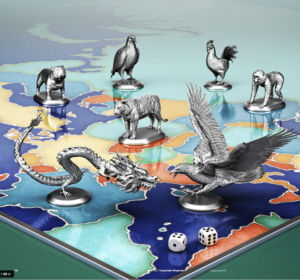
6th April 2021
What will the year of the Ox bring in UK China Relations
Lord C-J: 2020 has brought huge problems to the fore - particularly the COVID19 virus, by no means over and we hope the WHO mission to Wuhan sheds light on how to prevent further viruses from emerging and spreading. Meanwhile repression in Xinjiang and the National Security Law in Hong Kong have damaged confidence in our bilateral relations.
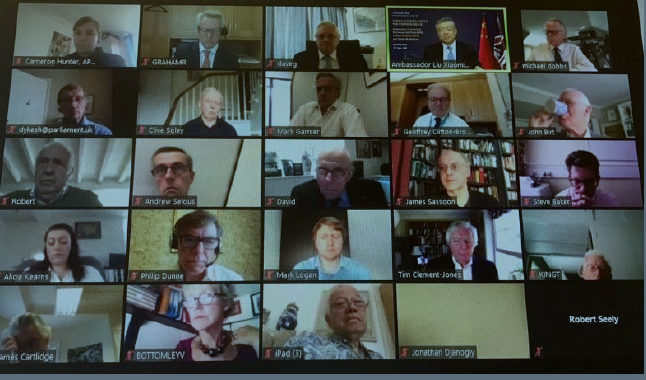
4th December 2015
All Party Parliamentary China Group Annual Report 2014
15th December 2014
Launch of China Cultural and Creative Industries Reports 2013
Last week I helped to launch a fascinating set of reports on China's creative industries edited by Professor Trish Walker and Professor Hardy Yong Xiang.
See the weblink here:
http://link.springer.com/book/10.1007%2F978-3-642-38157-7
I've done a foreword in which I discuss the opportunities for creative partnership between Britain and China. This publication will help enormously in developing those partnerships.
Here is what I said:
Creative employment in the UK provides around two million jobs, in the creative sector itself and in creative roles in other industries. In recent times employment in the sector has grown at double the rate of the economy as a whole.
Something very important for the creative industries is also happening in China.
In business the emphasis is now on creativity. This is very much reflected in the 12th five-year plan that is underway and marks an important new approach where creative and artistic skills are being highly valued.
At the same time I have seen a great interest in China in creating partnerships with British creative industries and creators, particularly in games and new media, publishing, architecture, design, fashion, animation, music, film, radio, television and advertising, especially after the spectacle of the Olympic and Paralympic ceremonies and the success of the British pavilion at the Shanghai Expo.
We now have great opportunity for creative and artistic partnership between China and the UK. There is a real role for collaboration between us in helping developing creative industries clusters in China.
These reports will be invaluable in helping British creative industries develop a strong understanding of where they can develop partnerships in China, and I very much welcome Prof. Patricia Ann Walker and colleagues’ initiative in putting such a comprehensive publication together.
2nd December 2014
TIF in Qingdao Debates Intellectual Property Protection
At the recent Technology Innovators Forum- TIF-In Qingdao I chaired a Roundtable session on IP. The aim was to provide practical suggestions for British and Chinese companies to maximise revenues and mitigate risks and identify follow up actions that can be taken on an industry to industry basis and/or to include in future government to government discussions.
In the earlier finance panel at TIF-IN the conversation rapidly moved on to the question of IP . The view of that panel was clearly that financing in this field becomes more uncertain and more unattractive without proper protection of this vital asset.
In our roundtable we were assisted by an expert panel:
- The UK IP attaché to China Tom Duke
- Max Hole, Chairman and CEO of Universal Music Group
- Guo Biao, China Director at the International Federation of the Phonographic Industry (IFPI) and Senior international music industry representative in Beijing,
- Mark Devereux, senior partner of media and technology law firm Olswang, Deputy chairman of the British Screen Advisory Council and previously the deputy chairman of the UK Film Council
- Andrew Wajs, the Chief Technology Officer of Irdeto an expert in the technology of protecting IP
We looked at the environment for Intellectual property development and protection applicable to the creative industries, internationally, and in China in particular and posed a number of questions.
- Is it common ground in fact that good IP protection is essential to underpin our current and likely future business models?
- What are the business models of the future that are best in tune with current protection of IP and the public’s willingness to value it?
- What are the barriers in IP protection and enforcement to exploitation of commercial content? Are the full range of IP rights recognized ? Are IP rights fit for purpose?
- How do we address issues of piracy and criminality in key markets in particular in relation to the internet?
- How to that end do we go beyond enforcement and influence and change consumer attitudes to IP . In particular can we educate young people that creators have rights and there is fundamental value in IP? Are there robust technological solutions to piracy and infringement? Can brand owners and credit card companies be persuaded to avoid rogue sites?
- Copyright in particular, is changing across the world to adapt to new conditions. Is this in the right direction?
- In China the IP protection regime is rapidly changing- for the better as several of our speakers yesterday emphasised – as Chinese homegrown IP grows in importance.But what are the current IP risks in China, whether in due diligence, contractual terms or legal provision and enforcement when doing business in China.
- What local action is needed to mitigate these risks?
- How are different aspects of IP treated eg know how, copyright and trademarks?
- How will all this impact on the future for UK-China creative industry partnerships in the sector?
"The regulatory and and legislative reform side and the development of education of the public and others in the value and importance of IP to the creative industries, both for their future viability and in their ability to deliver quality content."
— Lord Clement-Jones
Much of the discussion on this topics will be ongoing but it is clear that two strands are key:
The regulatory and and legislative reform side and the development of education of the public and others in the value and importance of IP to the creative industries, both for their future viability and in their ability to deliver quality content.
On the former front we need to stay abreast of the new business models and ensure reform in China and elsewhere is timely to enable creative content to be exploited. In particular performing right needs to be recognised in China. Some collecting societies need reforming too.
Positive technology and business models are emerging in the mobile sector in particular, but clear copyright laws are needed at the same time.
On the education front there is much that can be done to change attitudes to IP among the public and among search engine sites, brand owners and credit card companies. The BFI model is one that could be pursued by others.
It was the hope of many that the new Global Digital Media and Entertainment Alliance (GDMEA)will prove a useful vehicle for dialogue on IP and ensuring copyright reform in China alongside education initiatives.
24th November 2014
Britain and China: A Creative Partnership : LSE Confucius Institute Lecture
13th September 2014
Lord C-J debates Iraq Crisis
Recently the London based Centre for Kurdish Progress in partnership with the Centre for Turkey Studies (CEFTUS) organised a debate on the crisis in Iraq at the House of Commons.
Over 200 hundred people attended the event. Keynote speakers included Kurdistan Regional Government High Representative to the UK Bayan Sami Abdul Rahman, Former Secretary of State for Defence Dr Liam Fox Conservative MP for North Somerset, UK Representative of the Democratic Union Party (PYD) Dr Alan Semo, Lord Maurice Glasman, Mr Bill Park of Kings’ College, author and journalist Mr Patrick Cockburn, author and journalist and myself.
Director of the APPG for the Kurdistan Region of Iraq, Mr Gary Kent chaired the debate.
This is what I said
Treat Kurdistan as an Equal
I’ve been a regular visitor to Kurdistan over the past 10 years and I’ve developed a huge admiration for the way that in the face of all the odds: genocide, persecution and hardship, the Kurds have built a democratic, plural and increasingly prosperous society in the very midst of some very dysfunctional neighbours.
We need to recognize the vital importance to us of the Kurds as allies
They are a bastion of civilisation, democracy and pro-western sentiment in the Middle East.
They are self critical too. What other Middle East government would have commissioned a frank Report by the Economist Intelligence Unit and follow up its recommendations.
It was published before June but even then the contrast with conditions in the rest of Iraq couldn't be starker.
They highlighted some key strengths but the key weakness is the relationship with the Bagdad Government.
That was before the change of government and the installation of a new Prime Minister but even though we nearly have a full slate of Ministers I am not overly optimistic about the ability of the parties to come an agreement on the issues which have been outstanding for many years despite many promises made: oil and gas issues;disputed territories; resources for the peshmerga and so on.
Let alone the backlog of the central government's budget contribution to the KRG.
Especially if Mr Shahristani remains a force in government.
It may well fall apart in three months time.
All this means that as the UK or the EU we can't keep trying to deal exclusively through the Bagdad Government, although of course any leverage brought to bear by them is welcome.
The KRG should to be treated as autonomous government at the very least and their aspirations to be independent as legitimate.
From here on out we need to deal direct and do whatever it takes to support them.
Historically this has not been the case whether dealing with consulate services, visas, business support, despite the fact that Iraqi Kurdistan has been by far the most promising region economically, security wise, and on every other count there has been a reluctance to recognize this.
My view is that we should have had closer relations with the KRG some time ago, going beyond UKTI type activity.
The need for direct relations at a senior level is doubly important of course today.
We have a serious situation comparable with Bosnia or Darfur or the Anfall against the Kurds by Saddam Hussein.
We are seeing Mass Killings, Rape and Abduction. Psychopathic behaviour by ISIS brigades.
We need to be clear that this constitutes Genocide.
The recent Amnesty Report "Ethnic Cleansing on a historic scale" did not used the word but that's what it is.
As the Kurdish Genocide Taskforce is calling for these acts should be investigated by the UN and referred to the ICC.
The implications are far reaching.
Unless are stopped are stopped disaster will ensue not just regionally but globally.
IDSIS recognizes no borders but the Kurds have 1000 kms to defend.
The current refugee situation alone is intolerable. 1. 4 million on top of a population of 5 million.
Kurdistan needs huge support in tackling the problem. Not from the UN alone. They need more humanitarian assistance and will need development support if their economy starts to suffer from the conflict.
As regards the military aspect I am very heartened by the PM's announcement that we will supply British Arms to the Kurds
We have now have a consensus that we must arm the Kurdish peshmerga and give them whatever resource they need to fight effectively. Not just arms but intelligence, logistics, night vision equipment and so on.
If there is any remaining public doubt it will soon be dispelled.
It is essential we play our part in air strikes.
But in all this we must treat the Kurdish people and the KRG as an essential allies in implementing a strategy to defeat or at least minimize the threat from ISIS.
That means treating them as equals from here on out. As should other members of the EU and the Regional powers such as Turkey, Iran and Saudi Arabia.
4th December 2013
Lord C-J promotes Kurdistan/UK tourism
This is a speech I gave at a recent Iraqi-Kurdistan Tourism Infrastructure Development Conference at the BIS Conference Centre-a Reflection on 10 years of development.
It's a great pleasure to be involved with an event promoting Iraqi Kurdistan.I’ve been looking back over developments in the last 10 years now since I first went to the Iraqi Kurdistan region in 2004 and its incredible what progress political, economic and social has been made since then .
As a member of of the All Party Parliamentary for Iraqi Kurdistan it's been a pleasure promoting relationships between the Region and the UK.
I made a speech about my visit in the House of Lords shortly after I got back and it is instructive to contrast then and now:
Then I was driven through South Eastern Turkey having flown to Dyarbakir and it was was a relief to arrive at the border with Iraq after so many hours. Now there is a major new British designed Hawler (Erbil) International Airport with direct flights from all over Europe
Then I complained about the attitude displayed by Turkish soldiers towards Iraqi Kurds at the border with border guards describing my literature about agriculture and education as a “problem” because it mentioned the words “Iraqi Kurdistan” .
Now there are excellent political relationship too between Presidents and PM Barzani and President Gul and PM Erdogan. The PKK issue in Turkey is beginning to be resolved too with a cease fire declared by their leader Abdullah Öcalan and a peace settlement in sight.
Trade between Turkey and Kurdistan flows freely. Turkish companies are the largest direct inward investor in the Region . Turkey is becoming directly involved in oil and gas exploration in the region
Now thanks to the freetrade approach adopted by the KRG there is huge investment by Turkey itself growing at 6-8%. Kurdistan’s growth rate is reported at 12%. There is a growing consumer economy.
Erbil itself and the other major cities are transformed . New hotels and shopping malls have sprung up in the last 10 years.
There are major Oil and gas developments. There has been significant exploration and finds from a number of medium sized companies and now oil majors such as ExxonMobil and Chevron.
10 years ago I noted the progress that had been made in providing universal education at primary and secondary levels in Kurdistan even in the smallest village and in adult education too. Now Higher Education is flourishing .Education links with Britain are growing stronger by the year symbolized by recent visit from higher education minister David Willets. Recently 21 universities visited to explore ties.
In those days there were two separate government administrations . One run by the KDP and one by the PUK. Now and for some time there is a common democratically elected parliament with regular terms of office for government following elections and the Prime Ministership has rotated between the parties on two occasions. . The government of different parties and faiths continues to be a model of pluralism.
Now we see the maturing of parliamentary opposition too.
I talked then about the absolute need for a British consulate in Erbil. Now there is vastly better representation of British interests in Kurdistan. We take the Consulate General for granted but still await proper premises in downtown Erbil and still have major UK visa frustrations !
Then the British were conspicuous by their absence in helping with the economic development of Kurdistan and building commercial ties. Now particularly in the last three years British companies have begun to get stuck in and we have seen many British companies represented at the major trade fairs. In 2011 at the Erbil Trade Fair there were 89 delegates, including 20 exhibitors, the largest UK trade delegation to the region to date, in fact the largest non Ministerial business delegation to anywhere!
There are something which were true then and I am glad to say have endured throughout the ten years
Then I said that security in the Region in contrast to the rest of Iraq thanks to the continuing presence of the peshmerga was excellent and this fact should be recognised in FCO advice. This has continued to be the case - and the FCO stresses this fact in travel and trade advice. Iraqi-Kurdistan really is an island in a sea of instability.
Then I said they had built the makings of a religiously tolerant pluralistic democratic society. It was notable that many of the Chaldean Christians retreating from the bombs in Mosul were taking refuge in Iraqi Kurdistan. Now there is a wonderful diversity of culture even more than ever in Kurdistan with a vibrant Christian quarter in Erbil in particular. Now of course the Region is absorbing a whole new set of refugees from Syria. All these elements lay the grounds for a potentially hugely successful tourism industry in Kurdistan which could become not just regional but international in nature.
I have a friend in Kurdistan who is passionate about the preservation of its cultural heritage and get regular updates on developments!
Bayan has mentioned some amazing sites. I've only been to a few of them.
Some cities in Kurdistan go back 8000 years to the dawn of civilisation like the UNESCO protected citadel of Erbil.
There is the Assyrian aqueduct -the largest in the world built by Sennecherib in 700 BCE and the site of Alexander the Great's famous battle against Darius III the Persian Ruler at Gaugamela IN 331 BCE.
There are the extraordinary Yazidi temples at Lalish
There is so much to see.
Now it even appears that the Hanging Gardens were not in Babylon but in Northern Iraq!
Allied to the history -and we must never forget that part of that history are some of the recent tragedies during the Anfall under Saddam Husedsein's rule and the genocide at Halabja in particular, now recognized as such by Parliament -there-is Kurdistan's extraordinary scenery -the spectacular Zagros mountains and dramatic waterfalls.
The mountains will be the friends of Kurdish tourism I hope!
Every year the tourism infrastructure in terms of transport links and much better quality hotels and hospitality offer-and shopping!- has improved.
All this will I am sure lead to a huge growth in tourism in Kurdistan. I am a great believer in the power of tourism to generate economic growth and employment and spend time urging government to do more here to release the potential.
I know the KRG are very aware of the potential importance of tourism to Kurdistan and I am absolutely delighted to help open today's proceedings and hand over to the Minister who is going to give us all the information we need to encourage investment in tourism and hospitality!
1st March 2025
Lord C-J : We must put the highest duties on small risky sites
Many of us were horrified that the regulations implementing the provisions of the…
21st September 2024
Lords Debate Regulators : Who Watches the Watchdogs?
Recently the Lords held a debate on the report of the Industry and Regulators Select…
2nd June 2024
Lords Committee Highly Critical of Office for Students
Shortly before parliament dissolved for the General Election the Housse of Lords…
20th April 2024
We Need a New Offence of Digital ID Theft
As part of the debates on the Data Protection Bill I recently advocated for a new…
15th February 2024
Lords call for action on Digital Exclusion
The House of Lords recently debated the Report of the Communication and Digital…
18th February 2023
We Can’t Let this Disastrous Retained EU Law Bill go through in its current form
In the Lords we recently saw the arrival of the Retained EU (Law Revocation and…
4th February 2023
Crossparty work yet to do on the Online Safety Bill
Finally the Online Safety Bill has arrived in the House of Lords. This is what I…
10th December 2022
Tackling the Harms in the Metaverse
I recentlty took part in a session entitled Regulation and Policing of Harm in the…
30th October 2022
Freedom of Expression Compatible with Child Protection says Lord C-J
The House of Lords recently debated the report of the Communivccations and digitl…
18th August 2022
At last… compensation for Hep C blood victims
Finally after 5 decades Haemophiliac victims of the contaminted Hepatitisis C blood…
30th July 2022
Government must ensure the regulation of election dis-and misinformation
Earlier this year during the Elections Bill process we debated the regulation of…
30th July 2022
We need to end the confusion and build public trust over health data
During recent debates during the passage of the Health and Scare Bill I helped move…



